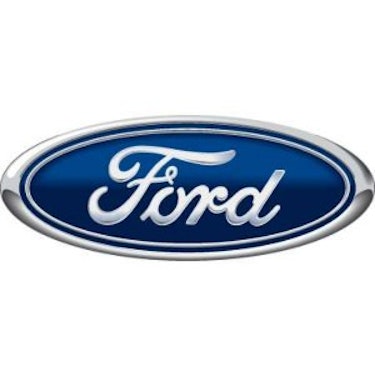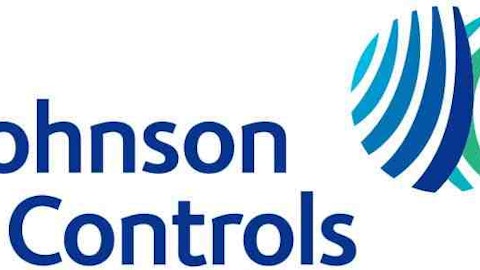With the housing market stabilizing and global demand picking up, the North American car industry looks to finally be getting a breather as it witnesses positive quarterly results. However, the car makers cater to not only America, but also to Europe and rest of the world.

General Motors Company (NYSE:GM) has faced a decline in its year-on-year revenues for the first quarter of 2013 despite a surge in its U.S. and China sales by10%and9.6%, respectively. The decline in revenues is due to the contraction in General Motors Company (NYSE:GM)’s sales in the European markets as well as incentives offered such as price cuts to drive the sales. These inadvertently suppress margins and the income available to the investors. The government bailout back in 2008 and 2009 proved to be a setback for General Motors Company (NYSE:GM) in terms of sales, as many potential customers moved toward rivals.
On the brighter side, this company is targeting the Indonesian market with its new Chevrolet Spin. The Indonesian market is spiking at 11% growth per year, and General Motors Company (NYSE:GM) is pouncing on this opportunity, having sold 1,294 Spin vans in just one month. Moreover, the company is making its way into the Chinese luxury market, investing $1.3 billion in a joint venture, which is yet to be materialized in 2015. Overall, the Indonesian market as well as the Chinese luxury markets is not good enough, the company needs to revamp in order to sustain.
Ford Motor Company (NYSE:F) recently has been in a fix where the company recalled around 465,000 vehicles to fix minor faults, under their corporate social responsibility, realizing the responsibility the company bears to provide the best to their customers. This has spurred a positive image of Ford Motors, resultantly enhancing customer loyalty. Ford Motor Company (NYSE:F) has a strong market demand, a 13% rise in its U.S. sales testifies to that, leading to increased sales and profit margins.
U.S. sales of hybrid cars rose by 23% recently, Ford with its Hybrid Sedan and C-Max Wagon was able to capture a major chunk of this market, by selling 46,197 hybrid units. Expansion in hybrid and battery-only cars exposes Ford Motors to a wide market, with its potential to grow rapidly. Moreover, adopting the 3D printing technology Ford Motor Company (NYSE:F) is saving up to 25% of manufacturing time as well as cut the production costs by 30%. All in all, Ford Motor Company (NYSE:F) has brighter prospects.
Toyota Motor Corporation (ADR) (NYSE:TM) had hurt its reputation back when it was recalling not just a few, but millions of its vehicles due to a glitch in the clutch and floor mat. A slow response in the most damagingly manner had hurt the reputation of the company. Moreover, the company is exposed to the risk of reduced production due to a rise in the inventories of vehicles produced.
The company sales are increasing in a reasonable manner. Its sales in June increased by 9.8% from 2012. Meanwhile, the sales from the Hybrid Prius are very encouraging, but are poised to stringent competition from General Motors Company (NYSE:GM) and Ford Motor Company (NYSE:F). Furthermore, Toyota Motor Corporation (ADR) (NYSE:TM) was unable to realize the 4.4% year-on-year increase in sales in China, which is the roaring car market. To top that its position in North America has also deteriorated, this accounts for 25% of its total revenues. Due to the devaluation of the Japanese Yen, Toyota Motor Corporation (ADR) (NYSE:TM) did well over the fiscal year. Apart from that, Toyota Motor Corporation (ADR) (NYSE:TM) is facing real troubles.
Competition
| Indicator | General Motors | Ford Motors | Toyota Motors |
| Price/Earning TTM | 8.9 | 11.4 | 20.7 |
| Price/Book | 1.8 | 3.7 | 1.6 |
| Revenue Growth (3 yr. Average) | 13.3 | 4.9 | 5.2 |
| Income Growth (3 yr. Average) | -61.1 | 27.8 | 66.2 |
| Return on Equity | 22.7 | 34.4 | 8.5 |
| Dividend Yield | – | 1.80% | 0.54% |
| Current Price | $34.78 | $16.85 | $124.90 |
Data from Morningstar and Financial Visualizations on July 9, 2013
Analyzing the key ratios clearly rules out General Motors Company (NYSE:GM), due to its highly negative income growth and lack of dividend payment. Ever since the government bailout, GM is not deemed financially stable enough to allow a dividend. Toyota Motor Corporation (ADR) (NYSE:TM)’s stock is highly priced, whereas it does not provide a proportionate dividend yield nor does it provide a decent ROE as compared to the price.
Ford Motor’s stock is decently priced and proportionate to the dividend yield as well as ROE. Even though the company has a lower revenue growth as compared to the rest, cost savings, increased numbers in its hybrid sales and its evergreen North American sales are slowly improving the current situation.
Final thoughts
Compared to the rest, Ford Motor Company (NYSE:F) clearly has greater growth prospects with minimal dilemma. Moreover, the company sales have increased more than those of its rivals, which would lead to a rise in revenue, resulting in increased profit margins available to appease the investors. In my judgment Ford is comprehensible Buy.
The article Which Car Producer Could Best Drive Your Investment? originally appeared on Fool.com and is written by Marina Avilkina.
Marina Avilkina has no position in any stocks mentioned. The Motley Fool recommends Ford and General Motors. The Motley Fool owns shares of Ford. Marina is a member of The Motley Fool Blog Network — entries represent the personal opinion of the blogger and are not formally edited.
Copyright © 1995 – 2013 The Motley Fool, LLC. All rights reserved. The Motley Fool has a disclosure policy.




